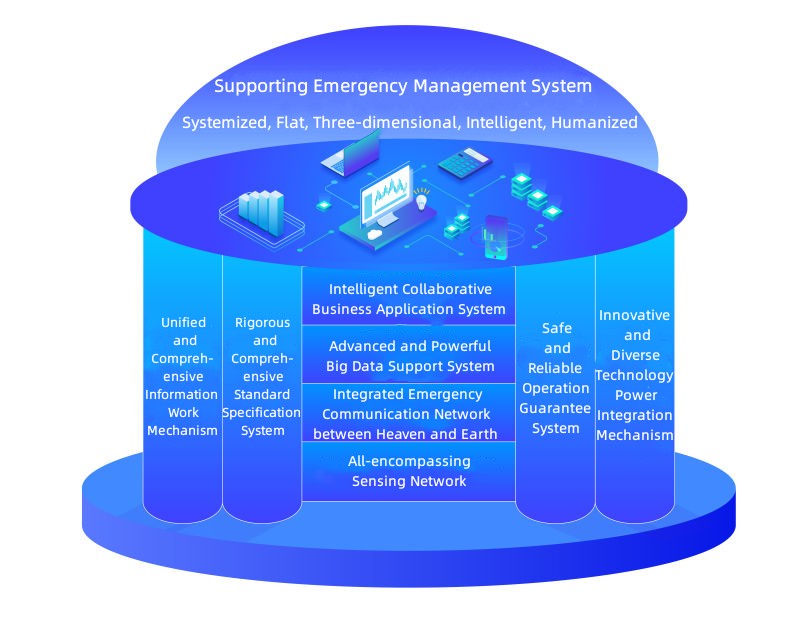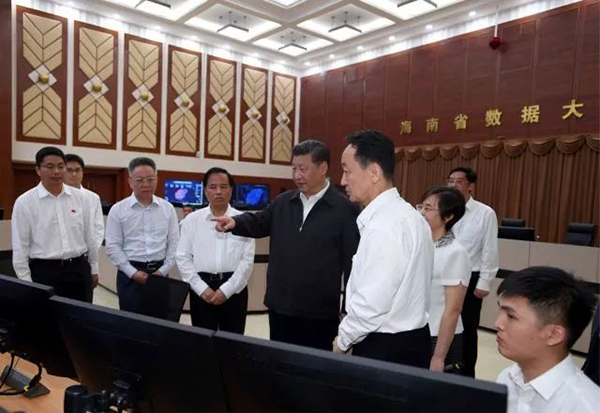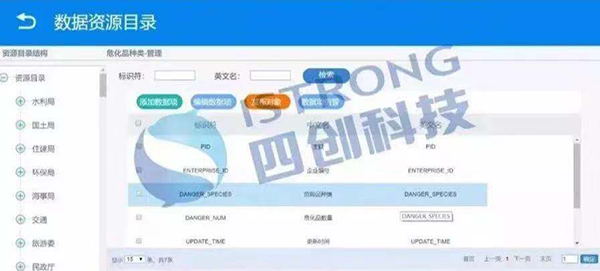
Technical Roadmap for System Integration and Data Sharing
The Ministry of Emergency Management, established in 2018, integrated the responsibilities of 13 departments. In response to new circumstances, tasks, and demands, to promote the deep integration of advanced information technology and emergency management services, and to achieve leapfrog development in emergency management informatization, the Ministry released the "Framework for Emergency Management Informatization Development Strategy (2018-2020)" in December 2018, and the "2019 Local Emergency Management Informatization Implementation Guide" in February 2019. The Guide clearly states that six major tasks should be completed by the localities in 2019. According to the Guide, local emergency management departments in 2019 should complete the integration and data sharing of systems built by transferred units. Where conditions permit, relevant information systems from outside units should be integrated. Provincial and municipal emergency management departments should initially build an emergency management data governance system, form a data resource pool, and based on information resource planning, construct a practical resource library, theme library, and special topic library.System integration and data sharing are fundamental and key points in the construction of emergency management informatization, as well as the core of application platform construction. Based on its extensive design and implementation experience in system integration, data center construction, and data sharing, ISTRONG proposes a technical roadmap for system integration and data sharing in the construction of the emergency management informatization platform.
Technical Roadmap
Four steps of system integration and data sharing: Data collection, data management, data application, and data service.
1、Utilize the government external network to connect department and bureau networks, and through data synchronization middleware, achieve heterogeneous data collection.
2、Establish disaster-related data management methods and standard norms, construct a data item management function, and realize the management of disaster-related data resources.
3、For various refined topics in emergency management, safe production, and disaster prevention and reduction, form a data middle platform to facilitate data application.
4、Optimize data services to achieve orderly data exchange, deep integration, on-demand service, and a virtuous cycle of intensive emergency data ecology.
ISTRONG has developed the "Hainan Province Internet+ Disaster Prevention and Mitigation Comprehensive Information Platform" for system integration and data sharing. The platform integrates disaster-related big data from 36 departments and bureaus, establishes an information interconnection and communication mechanism, and breaks down the barriers of "honeycomb coal" information resources. Since the platform went online, it has received high praise from leaders such as General Secretary Xi Jinping and Vice Premier Han Zheng.
Benchmark Case

On April 13, 2018, General Secretary Xi Jinping, during his inspection of the Government Data Center's construction and operation in Hainan Province, listened to how the platform leveraged big data to handle typhoon prevention, evasion, and rescue. He observed a demonstration of the mobile platform in use and highly commended the construction outcomes of the platform. Additionally, he proposed the concept of intelligent management, emphasizing the importance of being "fully aware."
Hainan Internet+ Disaster Prevention and Reduction Comprehensive Information Platform"
The Hainan Internet+ Disaster Prevention and Reduction Comprehensive Information Platform was constructed around "one center, two platforms," namely the Disaster Prevention and Reduction Big Data Center, the Disaster Prevention and Reduction Decision Support Platform, and the Disaster Prevention and Reduction Information Service Platform. With the objective of achieving comprehensive coverage "horizontally to the sides and vertically to the bottom," the platform establishes an information interconnection and interoperability mechanism. It carries out big data analysis and applications to support remote multi-departmental consultations, business collaboration, and linked commands, thereby achieving business coordination support from the start to the end of emergency response and continuing into post-disaster reconstruction.
One of the essential functions of this platform is "Data Resource Catalog Management." This feature breaks down the "honeycomb coal"-style barriers between data from various departments and systems, integrating disaster-related data from 36 departments and bureaus across the entire province, thereby effectively achieving multi-departmental system integration and data sharing. This approach is a first in the construction of national disaster prevention and reduction platforms.

